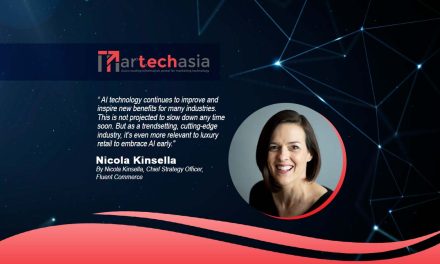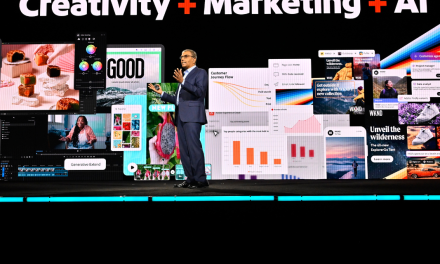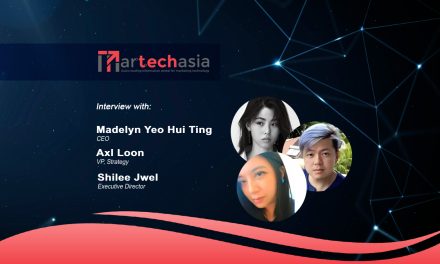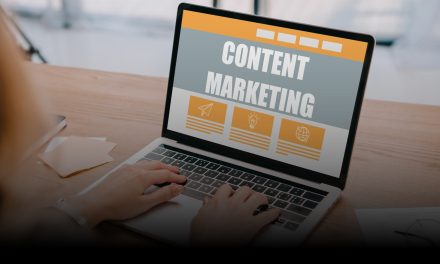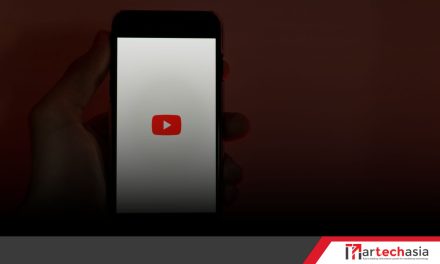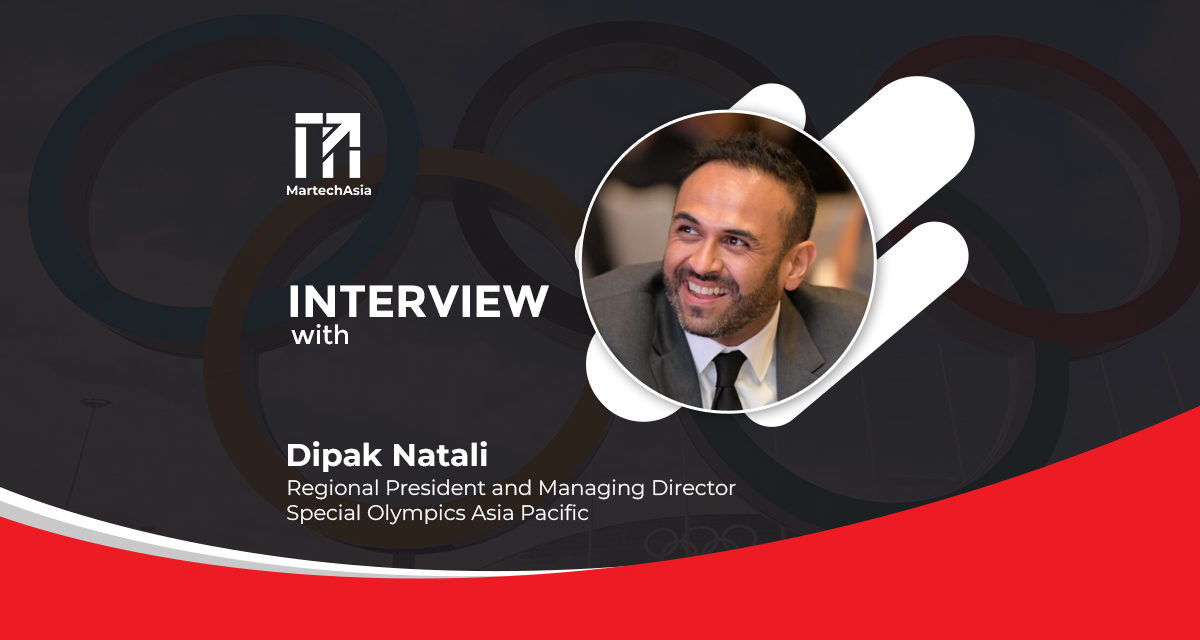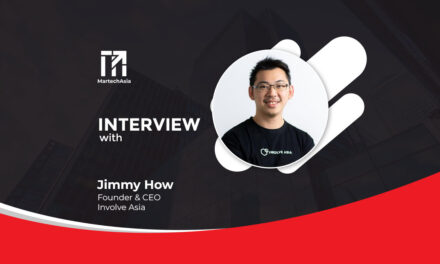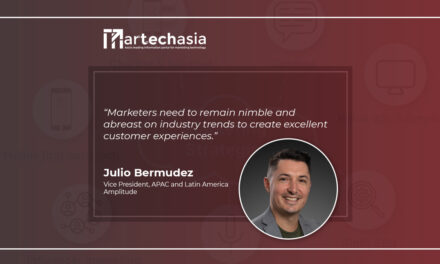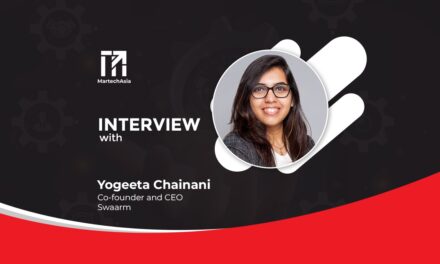In this interview with MarTechAsia, Dipak Natali, Regional President and Managing Director of Special Olympics, Asia Pacific, talks about the Special Olympics and how and why his organisation launched the social by design #walkforinclusion campaign to celebrate people with Intellectual Disabilities.
Special Olympics is a non-profit organisation that provides year-round sports training and athletic competition in a variety of Olympics-type sports for children and adults with Intellectual Disabilities (ID). In this interview, Dipak Natali, Regional President and Managing Director of Special Olympics, Asia Pacific, talks about the Special Olympics and how and why his organisation launched the social by design #walkforinclusion campaign to support and celebrate people with Intellectual Disabilities.

What is Special Olympics Asia Pacific and why has this social by design #walkforinclusion campaign launched?
Special Olympics is a non-profit organisation that provides year-round sports training and athletic competition in a variety of Olympics-type sports for children and adults with Intellectual Disabilities (ID). We use sport as a platform to give people with ID the chance to reach their full potential and change the way that they are often treated and perceived by others both on and off the playing field. For us, sport is a fantastic conduit through which we can improve the lives of people with ID; having a positive impact on their health, giving them a chance to learn new skills and simply offering opportunities to lead well rounded lives – just like anybody else. Special Olympics Asia Pacific (SOAP) supports more than 2.1 million athletes with ID across 35 countries.
We know that children with ID encounter many barriers and challenges to being accepted and getting the right start in life is critical to any person’s development. We wanted to raise awareness of the challenges that children with ID face and generate support for the work we do through our Special Olympics Young Athletes program, an early intervention initiative for children with and without ID between the ages of 2 and 7. Special Olympics Young Athletes currently reaches out to more than 360,000 children with ID across Asia Pacific but there are still many more out there who need our help.
With this in mind, we have launched #WalkforInclusion, a social-by-design campaign featuring a virtual activation to raise awareness and support for children with ID across Asia Pacific to bring home the message that in the global debate of Diversity and Inclusion, a large population is still marginalised from the mainstream consciousness and discussion and so much more needs to be done to address this.
What are the main elements of this campaign? How was it conceptualised?
The #WalkforInclusion campaign is a social-digital activation that will appeal to children, parents, teachers and the wider public by encouraging them to participate through either reading about our Young Athletes’ stories or submitting their own walks. With each step symbolizing a child’s key milestone, the public can share videos of themselves, family members or friends walking, across social media platforms, where creative expressions of the motion of walking are encouraged.
Every video tagged with #WalkforInclusion will add 10 steps to a universal digital counter that will be hosted on the campaign microsite. Additionally, every page load, and steps taken across physical walks and runs documented in support of #WalkforInclusion will be added to the total step count.
The microsite pulls together stories of resilience and grit from athletes, families and coaches across Asia-Pacific. We have also developed a #WalkforInclusion AR Filter game – available on the Special Olympics Asia Pacific official Facebook & Instagram pages.
In addition to participating and having fun with this campaign, we invite all members of the online community to make a donation to support our work. Every dollar donated to Special Olympics Asia Pacific helps an athlete get access to the right support in order to give them a better shot at a brighter future. Monetary contributions will also go towards supporting the work across the region including providing better healthcare through screenings and access for athletes, with the hope of early intervention and thus prevention in times of health needs.
In the New Normal when most of the things have moved to the digital space, how can non-profits build awareness for the causes, especially for events that have a physical component?
Being a grassroots-led organisation, the community that had kept the movement going is of priority but how then can we ensure our relevance, stand firm on our focus of bringing our athletes out of isolation if Isolation had to be enforced? Along the way we realised, physical isolation was not the issue. Everyone understood why we needed to be apart – to keep everyone safe, so we can meet again.
Last year, we launched our first large scale campaign #MyNormal on #GivingTuesdayNow in May, to raise awareness of the issue of social isolation that our athletes face, especially during this global pandemic. While the emotional and economic effects of Covid-19 have been adversely felt by the general population worldwide, they are magnified for people with intellectual disabilities. It finally made us understand what our athletes felt and experienced every day of their lives.
We were also being more collaborative, working together with other non-profits like Unicef and embarking on research on how the pandemic has affected children with intellectual disabilities, their families and their community.
We are also letting those we support take the lead. Last July, as Phase two of #MyNormal we launched #1000Cranesforinclusion led by youth leaders with and without ID. The young people came together to fold origami cranes, where Japanese legend states that every 1000 pieces form a Senbazuru, a symbol of hope and healing during challenging times. The campaign invited the public to fold a crane and donate to our cause to support the work we do.
During this time, we have also continuously engaged our corporate supporters like, Bank of America, FWD, Macquarie and Microsoft where they shared our campaigns with their staff to help spread awareness of the work we do.
So these are ways that we have been diversifying and finding ways to get creative in building awareness and engaging our stakeholders – letting them know that even though some of our events have halted it doesn’t mean that work stops, there is still so much to be done to level the playing field for people with intellectual disabilities.
Is it possible to bring communities together despite social distancing? What role digital can play in achieving this?
Minimising social isolation and the health and safety of our athletes, volunteers and staff is key and we have been kept busy, from conducting competitions through exciting virtual games and training sessions online, hold meaningful mass activities through #1000cranesforinclusion as shared above, and the countless check-ins and deployment of volunteers to engage our athletes regularly.
We also have our global webinars that are held fortnightly, our regular newsletters, and keeping active on social media — we ensure that our stakeholders are kept aware of our current work and now as we move towards strategic planning, we are planning ahead together.
In fact, this pandemic has accelerated digital growth across the region, and while we do this, we are also mindful that we do not widen the digital divide for those that aren’t ready but find ways to bring everyone along.
Fit5 and Fitness cards with tips on health and fitness were digitally distributed to the various offices across Asia Pacific where they were printed and mailed to athletes – enabling them to keep fit at home.
We also realised that many athletes did not have access to computers, and phones were still a prevalent mode of communication in many rural parts. To help to help people with intellectual disabilities better understand Covid-19, and how to take care of themselves during the pandemic. we worked together with Swipe Direct with content from Access Easy English to release a series of easy to read, accessible educational materials.
Taking into account the diversity of the region, the resources were translated to several languages like Bahasa Indonesia, Bahasa Melayu, Divahe, Hindi, Japanese, Khmer, Mandarin, Tetun, and Urdu.

